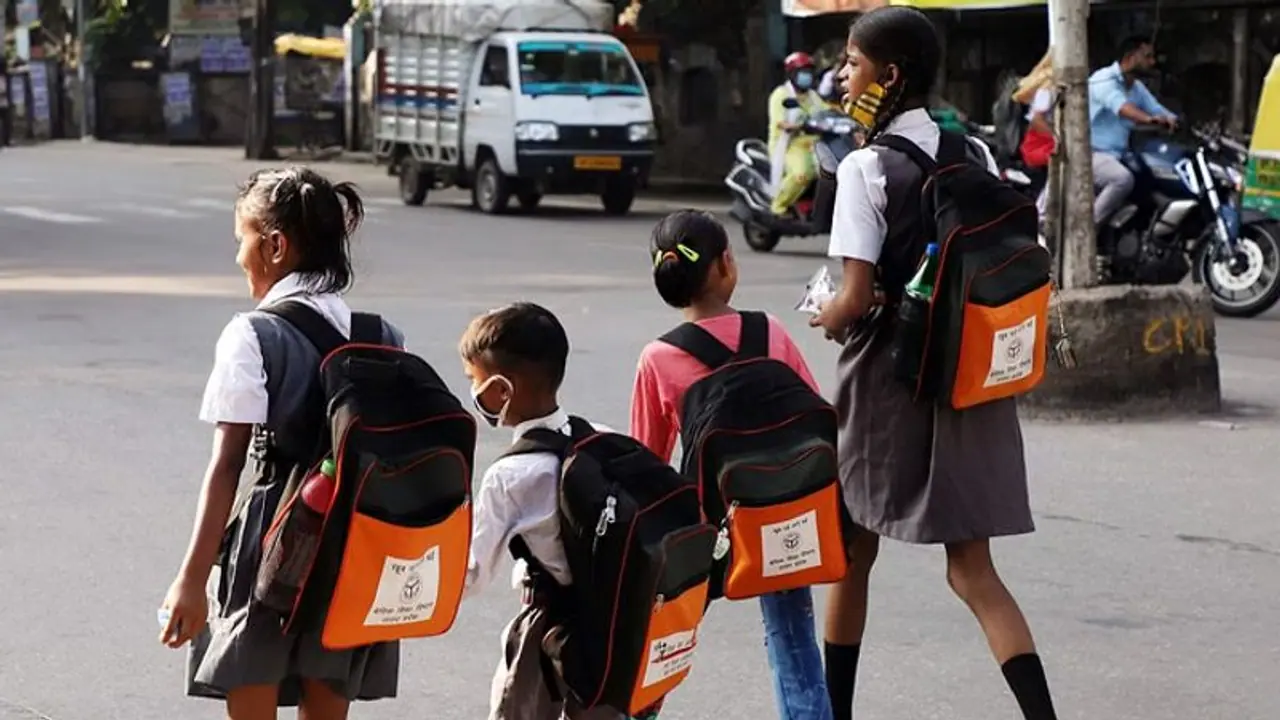Private schools in Karnataka are opposing the mandate to teach Kannada in CBSE and ICSE curricula. The Karnataka High Court issued a notice questioning the applicability of the language requirement in these institutions. Pro-Kannada activists and educationalists emphasize the need for proper implementation of language laws and amendments to the RTE Act.
In light of a recent development concerning the Karnataka High Court's directive on the inclusion of the Kannada language in CBSE and ICSE curricula, private schools in the state appear to have adopted a novel approach to express their disagreement with this language requirement.

During the earlier part of 2022, the Karnataka government issued a notification enforcing the compulsory teaching of the Kannada language across all schools in the state, spanning from 1st to 10th grade. However, this mandate has raised questions and concerns, particularly among parents of students attending CBSE and ICSE schools. In response, a group of parents recently filed a Public Interest Litigation (PIL) in the Karnataka High Court, challenging the applicability of this mandate within CBSE and ICSE institutions.
Why pro-Kannada activists oppose the proposed Karnataka-Tamil Nadu Metro line
In response to the PIL, the Karnataka High Court issued a notice to the state government, underscoring that the mandate might not be applicable to CBSE and ICSE schools. This development has sparked discussions and debates regarding the jurisdiction of the language mandate and its compatibility with diverse curricula.
Private firms in Karnataka have taken up a new ideology to oppose the mandate of the Kannada language in schools, raising concerns about its preservation. Despite laws requiring the teaching of Kannada in schools, private schools argue that it is unconstitutional, posing a threat to the identity of the language in the state.
The government must address these issues promptly by appointing a strong lawyer to ensure strict implementation of the language laws. Karnataka's diverse population, particularly in Bengaluru, hosts people from various backgrounds, including those from outside the state who lead several IT firms. Unfortunately, there have been reports of disputes between these individuals and Kannadigas over language issues.
Kannada compulsory subject in CBSE, ICSE schools: Karnataka HC notice to state govt
If the Kannada mandatory in the state seems unconstitutional, it is very much true that imposing Hindi as a language in the state is unconstitutional too. The migrants from different states often argue that by learning Kannada as a mandatory language, their children will lack job opportunities in the future. If this kind of incidents surge in the state, the Kannada language will be overtaken by the migrants, and cease to exist.
The Pro-Kannada activists in Bengaluru have emphasised the need to assign a proper strong lawyer for the mandation of Kannada language laws, and the Court needs to see that the State language should be respected. The educationalists, Poets and Pro-Kannada activists state that the government needs to intervene in such matters and solve them.
Ahead of Kannada Rajyotsava, language controversy erupts
Dr Baraguru Ramachandrappa, a senior literary critic, spoke to a Kannada daily regarding the issue and stated, “If we question the law made by the government to teach Kannada as a compulsory language, the question naturally arises whether there is no cost to the legislative assemblies. The Private Schools and parents need to respect the rules and regulations. State language should be mandated in the schools, is my opinion, however, we need to wait for the judgement of the Court. The government also need to provide effective argument”.
RTE Act should be amended - What do the Experts say?
"The ideology of private schools and parents opposing the Kannada mandate stems from a perceived mistake made by the government. The government had established a committee to ensure the strict implementation of the Kannada compulsory learning Act; however, it seems that the committee has failed to fulfil its duties adequately. Several states, including Karnataka, have urged the Central Government to amend the Right to Education Act (Section 29(F)) to make the teaching of the local language compulsory in education. Unfortunately, there is not sufficient pressure on the Center, leading to its sidelining," explained Dr Niranjanaradhya, a renowned educationalist.
Rishabh Shetty awarded with 'Vishwa Shrestha Kannadiga 2023' in Paramount Theatre, USA
Parents have started questioning the requirement of a No Objection Certificate (NOC) to establish CBSE and ICSE schools, considering the mandate of teaching the local language. Previously, obtaining a NOC was mandatory to start any CBSE and ICSE schools in the state. However, the Central government recently eliminated the need for a NOC, leading parents to take advantage of this change. Schools have taken actions to support parents in opposing the Kannada mandate. Activists like Arun Javagal, a Pro-Kannada advocate, emphasize the need to advocate for education to be governed by the State Constitution rather than being subject to Central rules. He also highlights the importance of other languages in the state fighting for their existence through constitutional means.
The biggest enemy of the language is Education being privatised. The government should intervene and make the State language mandatory, through strict laws. The Basic needs of the protestors against Kannada mandation, need to be cut off, said S G Siddaramaiah, Former Chairman of Kannada Development Authority.
